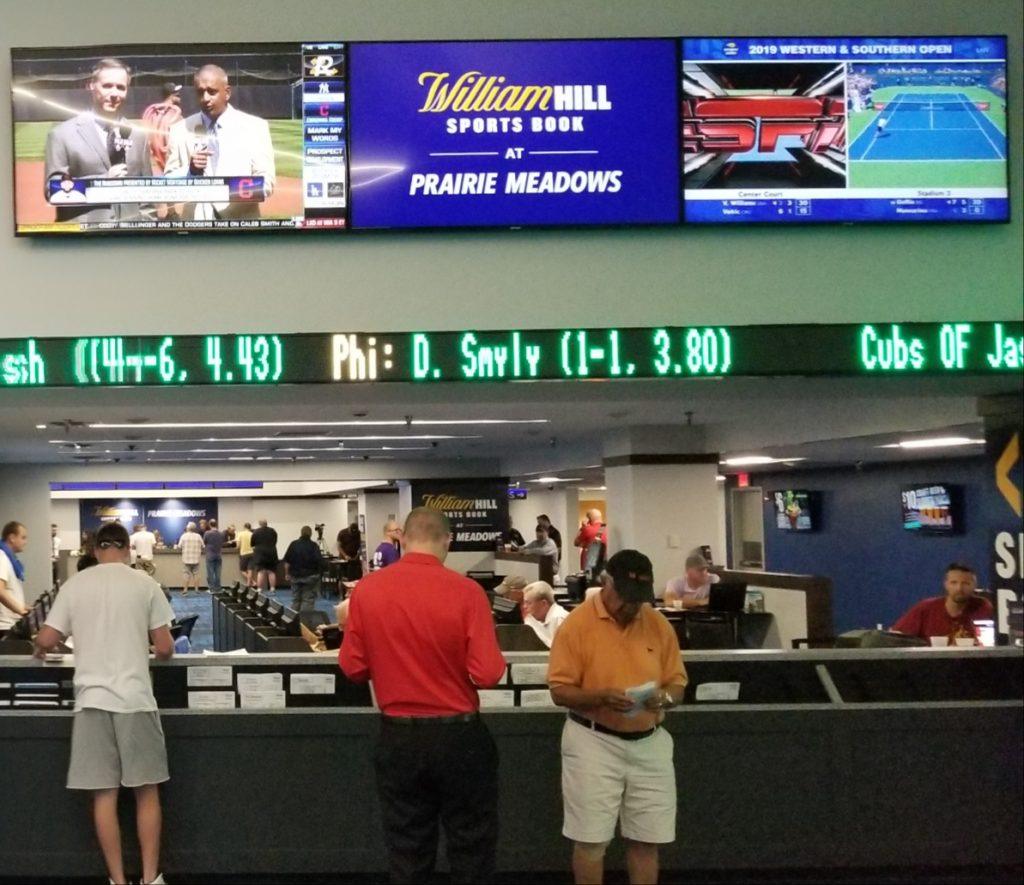[ad_1]
Posted on: June 28, 2020, 11:47h.
Last updated on: June 29, 2020, 09:44h.
A recent study by Horowitz Research and Heart+Mind Strategies indicates that about 14 percent, or 1-in-7 US adults, have bet on sports in the last year, and another 20 percent are considering making a wager.

Some of the findings in the report aren’t necessarily surprising. For instance, 87 percent of those surveyed bet on two or more sports, and 77 percent put money down on more than just what the study calls the top five sports — the NFL, NBA, MLB, and NCAA football and basketball. In addition, 80 percent say they’re more likely to watch a game if they’ve bet on it.
The study also finds just how prevalent online sports betting has become in the US. Among those surveyed, the average gambler made 20.6 bets on a mobile sports betting application. That’s a higher average than those going to retail sportsbooks or their bookie.
Others, though, reveal the illegal and unregulated markets still may thrive even as legal sports betting grows across the country. Researchers found that 53 percent of sports bettors residing in a state that’s legalized wagering still have gone to a bookie. That’s compared to 62 percent of all bettors surveyed.
Broadcasters Positioned to Serve Bettors
The findings from the survey will be discussed during a Tuesday session of the StreamTV Summer Research Summit, a two-day event that will delve into the latest research and data about broadcasting.
The survey ties into the broadcast and online resources sports bettors use, with 55 percent going to ESPN, compared to 37 percent who go to FOX Sports. Other top resources include league websites (31 percent), Twitter (31), NBC Sports (29), and CBS Sports (29).
The report also finds that 84 percent of bettors want to wager through their television provider platform. In addition, Bettors want analysis not just before games, but during and after them as well.
As many others have suggested in the past, sports betting will provide opportunities to engage that market across multiple platforms. Not only are bettors more likely to watch a game on which they’ve wagered, but they’re also more likely to read articles, delve into statistics, and follow social media outlets tied to the contest.
The good news is that established media brands are well-positioned to be an authoritative source for sports bettors… This highlights an enormous opportunity for these brands to capitalize on their already-engaged audience and their vast reach,” said Adriana Waterston, the senior vice president of insights and strategy for Horowitz.
Sports bettors may also be a lucrative market for broadcasters beyond just engaging them when they bet. The report finds that 54 percent of all sports bettors earn more than $75,000 annually. That’s compared to just 42 percent of all Americans.
Boon to Travel Industry?
Not only does sports betting present opportunities to broadcasters, the research also indicates it could help boost tourism as well. That may bode well for the 22 states, the District of Columbia, and Puerto Rico that have made it a legal activity.
More than 70 percent of those surveyed said they would be more inclined to go to a state they knew has legalized sports betting. The sports betting demographic, the report states, mirrors the group most likely to travel: younger, higher-earning urbanites.
“These results are timely, as states and tourism reopen (from COVID-19), even though most sports leagues have not done so yet,” said Mike Dabadie, Heart+Mind CEO. “There’s opportunity to reach out to sports bettors with an appealing message to travel now, as the data shows they are likely to be some of the first to travel again, and their spend on trips is also higher than other consumer groups.”
The study was based on the responses from 1,000 online surveys in March of adults. A summary of the report is available in an ebook from Horowitz.
[ad_2]
Source link


